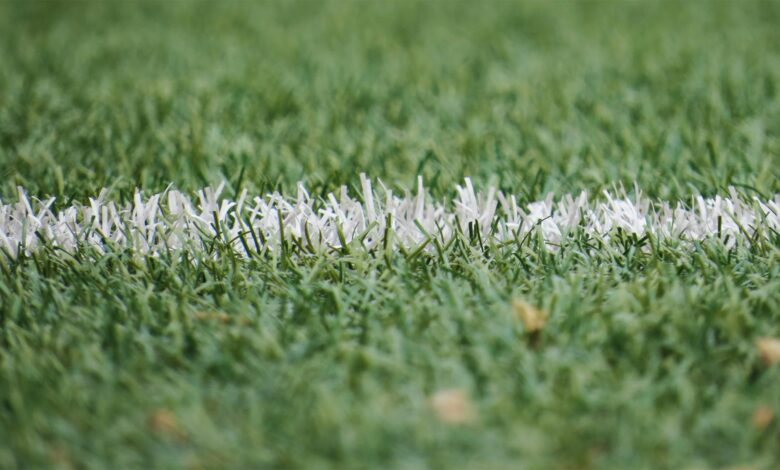Why Choosing Artificial Turf is a Sustainable Option for UAE Sports Clubs

In the arid climate of the United Arab Emirates (UAE), maintaining natural grass for sports fields can be challenging and resource-intensive. Artificial turf, also known as synthetic grass, has emerged as a viable alternative for sports clubs across the UAE. This article explores the sustainability aspects of artificial turf in the context of UAE sports clubs, highlighting its benefits over traditional natural grass fields.
The Rise of Artificial Turf in UAE
Artificial turf in UAE has gained popularity due to its ability to overcome environmental challenges and meet the high demands of sports facilities. As natural grass struggles with heat, water scarcity, and maintenance costs, artificial turf offers a sustainable solution that ensures consistent playing conditions without compromising on performance.
Environmental Benefits of Artificial Turf
Artificial turf provides several environmental advantages that make it a preferred choice for sports clubs in the UAE:
- Conservation of Water Resources
Water is a precious resource in the UAE, where natural grass fields require significant irrigation to maintain their lush green appearance. Artificial turf eliminates the need for regular watering, reducing water consumption by sports clubs and contributing to water conservation efforts across the region.
- Reduction in Chemical Usage
Maintaining natural grass often involves the application of fertilizers, pesticides, and herbicides to keep the turf healthy and free from pests. These chemicals can leach into the soil and groundwater, posing environmental risks. Artificial turf eliminates the need for such chemicals, promoting a cleaner and safer playing environment for athletes.
- Mitigation of Heat Island Effect
In the UAE’s hot climate, natural grass fields can absorb and retain heat, contributing to the urban heat island effect. Artificial turf, designed with advanced cooling technologies, reflects sunlight and reduces surface temperatures. This helps in creating a cooler playing surface for athletes and mitigating heat-related risks during outdoor sports activities.
Economic Advantages for Sports Clubs
Beyond environmental benefits, artificial turf offers economic advantages that make it a sustainable investment for UAE sports clubs:
- Lower Maintenance Costs
Maintaining natural grass fields requires regular mowing, watering, fertilizing, and pest control, which can be expensive. Artificial turf requires minimal maintenance in comparison, reducing operational costs for sports clubs over the long term.
- Extended Playing Hours
Artificial turf can withstand heavy use and inclement weather conditions better than natural grass. This durability allows sports clubs to extend playing hours and schedule more events without compromising field quality, maximizing revenue potential from their facilities.
- Longevity and Return on Investment (ROI)
High-quality artificial turf products are designed to last for years with proper care and maintenance. While the initial investment may be higher than natural grass installation, the long-term durability and reduced operational costs ensure a favorable return on investment for sports clubs in the UAE.
Technological Innovations in Artificial Turf
Artificial turf technology has evolved significantly to meet the specific needs of sports clubs in the UAE:
- Advanced Drainage Systems
UAE’s sporadic rainfall and occasional desert storms require artificial turf to have efficient drainage systems that prevent waterlogging and ensure quick drying. Modern artificial turf products incorporate advanced drainage technologies to maintain optimal playing conditions in all weather conditions.
- UV Stabilization
Exposure to intense sunlight can cause traditional materials to degrade over time. Artificial turf suppliers in the UAE offer UV-stabilized products that resist fading and maintain their vibrant appearance throughout their lifespan, even under the harsh Middle Eastern sun.
- Eco-Friendly Materials
Concerns about sustainability have driven the development of eco-friendly artificial turf materials. Many suppliers in the UAE now offer products made from recycled materials, reducing the environmental footprint associated with manufacturing and disposal.
Choosing the Right Artificial Grass Supplier in UAE
Selecting reputable artificial grass suppliers in UAE is crucial for ensuring the sustainability and performance of sports fields.
- Quality and Durability
Look for suppliers that offer high-quality artificial turf products designed to withstand the UAE’s climatic conditions and rigorous sports activities. Check for certifications and warranties that guarantee performance and longevity.
- Customization Options
Sports clubs have unique requirements for their playing surfaces. Choose a supplier that offers customization options in terms of turf color, texture, and performance characteristics to meet specific needs and preferences.
- Installation Expertise
Proper installation is essential for the performance and longevity of artificial turf fields. Partner with suppliers who have expertise in installation techniques tailored to UAE conditions, ensuring optimal drainage, stability, and safety of the playing surface.
Conclusion
Artificial turf represents a sustainable choice for sports clubs in the UAE, offering environmental, economic, and technological advantages over traditional natural grass fields. By conserving water, reducing chemical usage, and enhancing playing conditions, artificial turf contributes to the long-term sustainability and operational efficiency of sports facilities across the region. Choosing the right artificial grass supplier is key to maximizing the benefits of this innovative solution and ensuring a successful transition to synthetic playing surfaces.
As the UAE continues to prioritize sustainability and innovation, artificial turf stands out as a practical and forward-thinking investment for sports clubs aiming to enhance their facilities while minimizing environmental impact.



